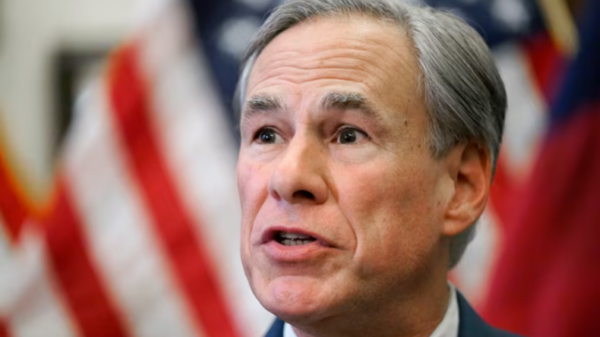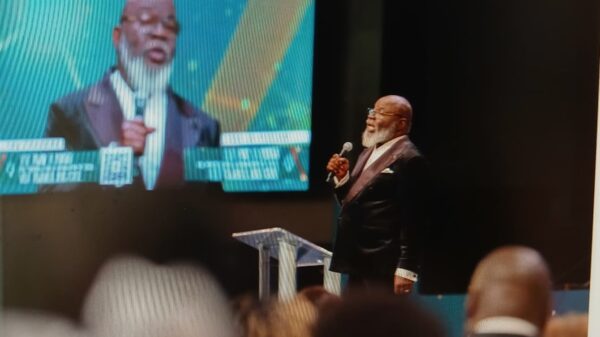Marilynn Mayse has the second-highest amount of fines owed to the Texas Ethics Commission. Judges who don’t report should cause concern, advocate says.

A Dallas County candidate who will take over a judicial benchin January owes more than $42,000 to the state for continually failing to report her campaign donors throughout multiple bids for office.
Marilynn Mayse owesthe second-highest amount of fines on the Texas Ethics Commission’s list of delinquent filers.
Judicial candidates must regularly report their campaign fundraising to the state commission — a step open government advocates call critical to ensuring judges’ impartiality and transparency. State law requires candidates report to the state and to voters who donated to their campaigns. But a weak enforcement system means candidates face few penalties for failing to report who is giving them money and how much.
Mayse won the March 1 Democratic primary for County Criminal Court 1, unseating incumbent Dan Patterson, who has been that court’s judge since 2007. The court hears misdemeanor cases.
Because there is no Republican candidate, Mayse will take the bench in January. She did not return requests for comment.
Thirteen Dallas judges or former judicial candidates owed money to the state as of March 11, the last time the commission updated its delinquent filer list. Most of them owe $500 — the fine for one missed campaign finance report.
Others are on the hook for thousands of dollars. Former state District Judge Theresa Hawthorne, who just ran unsuccessfully for the 282nd District Court, owes $33,000. Craig Bonham, who previously ran for judge of a family court, owes $11,500, and Theresa Bui Creevy, former candidate for a civil district court, owes $10,500.
Ernest B White III, who just won reelection to the 194th District Court, a criminal court, owes $1,000.
Hawthorne previously told The News her late filings were due to computer complications. She is up to date on her campaign finance reports, the commission website shows.
Bonham said he is being charged for a mistake made by the Ethics Commission when he filed at the last minute in 2014 after the previous judge withdrew her candidacy. Bonham said by the time the Ethics Commission set him up for reporting, he had missed an initial report — but that he has since submitted all necessary reports and thought the matter had been resolved.
Creevy said Friday she was unaware of the fines and had not been notified by the Ethics Commission. She said she planned to contact the commission Monday.
White did not respond to requests for comment.
“Judicial candidates not following the law should concern all of us for a lot of reasons,” said Anthony Gutierrez, executive director of the voter advocacy group Common Cause Texas. “We should expect higher of the people that are tasked with enforcing our laws or sitting in judgment of people who possibly break our laws.”
Campaign finance reports are important in showing who is donating to judicial candidates and tells voters a lot about who is influencing the candidates, Gutierrez said.Judicial races are low on the ballot and often overlooked.
“If you actually look at who’s funding the candidate, that oftentimes can tell you a lot more than any voter guide,” Gutierrez said. “So,candidates not releasing that information should be a big deal.”
Candidates and office holders with unpaid fines may continue running in elections and holding elected positions.
Mayse, for example, first ran for a judicial bench in 2016 and failed to file several campaign finance reports, prompting the stateattorney general’s office to sue Mayse for $22,000 in fines. The state’s law enforcement agency is tasked for collecting the debts.
Since then, she failed to report four times in 2020, bringing her grand total in fines to $42,350.
Mayse did, however, file the required reports for her most recent race for County Criminal Court 1.
The attorney general also sued Hawthorne, and in August a Travis County judge paved the way for the state to collect more than $32,000 in administrative penalties and $2,400 for the state’s legal fees.
Sometimes, the State Commission on Judicial Conduct gets involved.
On Monday, the agency published a “public warning” about Gena Slaughter, judge of the 191st Civil District Court in Dallas. According to the notice, the Ethics Commission reported that Slaughter filed 12 late campaign finance reports and owed $11,200 in fines. She paid it all by Sept. 17, 2021, before the judicial commission met in late October to review her case. She did not respond to requests for comment from The News.
The chairman of the State Commission on Judicial Conduct pointed to standards in the state’s Code of Judicial Conduct that say judges shall compile campaign finance reports and shall not engage in “willful or persistent conduct” that “is clearly inconsistent with the proper performance of his duties or casts public discredit upon the judiciary.”
But the judicial conduct commission does not have authority to remove a judge for not paying fines. It publishes findings so a public record exists. The commission can ask the Texas Supreme Court to suspend a judge for egregious problems.









You must be logged in to post a comment Login